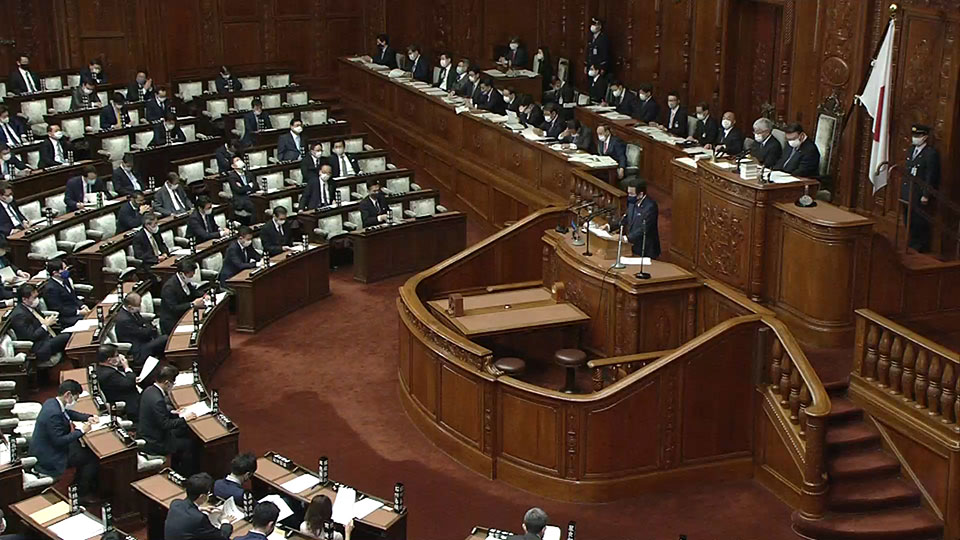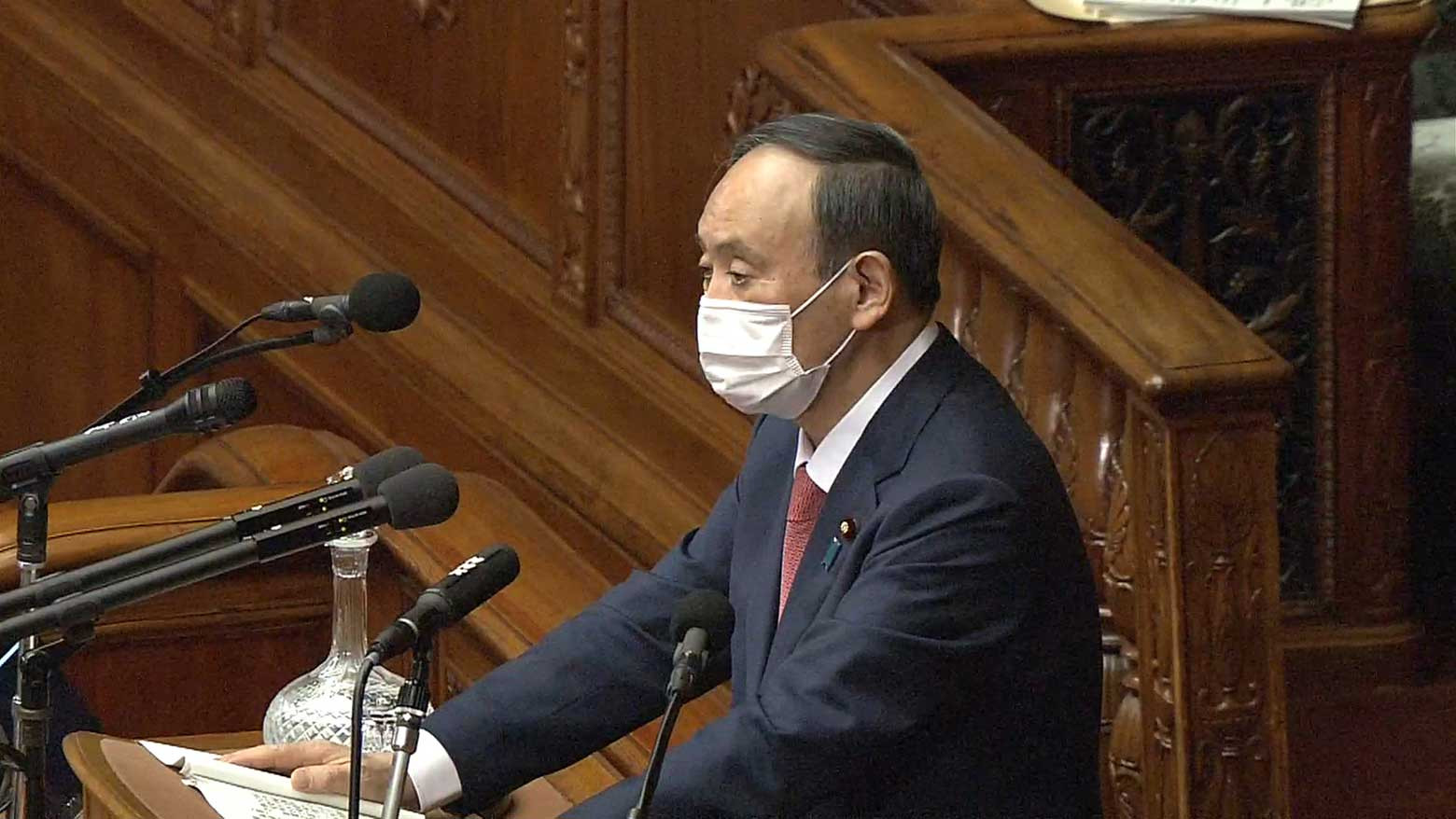In the Lower House on Wednesday, opposition leader Edano Yukio accused Suga of ignoring public opinion and being slow to implement essential measures to fight the virus. He also demanded that the Prime Minister acknowledge his misjudgment and apologize for it.
Suga dismissed the accusation, saying “I do not believe the government’s response was delayed, nor was it based on empty optimism.” He pledged to take the necessary steps to protect people’s lives and livelihoods and to maintain jobs and businesses while containing the spread of the virus.
In a policy speech at an extraordinary Diet session last October, the key phrase was “balancing measures against the coronavirus and the economy.” But infections have soared since then, and Suga has been forced to tilt the balance towards curbing the virus. He halted the "Go To" campaign, a domestic travel initiative designed to boost the economy, and declared a state of emergency for the Greater Tokyo area early this month, then expanded it to include Osaka and six other prefectures.
The upcoming election is likely to be a referendum of sorts on Suga’s handling of the coronavirus, and the government is looking to revise two laws to improve its ability to fight the pandemic.
Suga wants to be able to give prefectural governors more powers to ask business owners to change their operating hours without the need to declare a state of emergency, and to order on-site inspections and impose fines if they refuse.
He also wants a new provision added to the infectious disease control law that would allow governors to ask infected people to quarantine at home or hospitalize themselves. Penalties for non-compliance would be up to a year in prison or fines of up to one million yen (about $10,000).
Suga said in the Diet session that he has to balance the need to curb infections with consideration of the rights of individuals, and promised the government would listen to the opinions of governing and opposition parties as it aims to submit a bill to the Diet as soon as possible.
The administration hopes vaccinations will prove the key to easing public anxiety. Suga said the government will start the rollout by late February, after conducting screenings for safety and effectiveness. He has appointed Regulatory Reform Minister Kono Taro to coordinate the program.
The prime minister also spoke about the Tokyo Olympics and Paralympics, which have been postponed until this summer. He said he is determined to host the Games as a message of hope and courage to the world, as well as proof that humankind has overcome the virus.

Several members of Suga’s ruling party have said they believe it will be hard for him to call a general election until the spread of infection is contained. The latest NHK poll shows support for his Cabinet at just 40%, the first time since he took office last September that the number has dipped below the disapproval rating.
The prime minister has until October 21 to hold the Lower House vote, but his name will effectively be on the ballot several times before then. In April there will be an Upper House by-election in Nagano Prefecture; July will bring the Tokyo Metropolitan Assembly election; and Suga’s term as LDP president expires in September. The next 150 days are likely to prove decisive to his political future.

